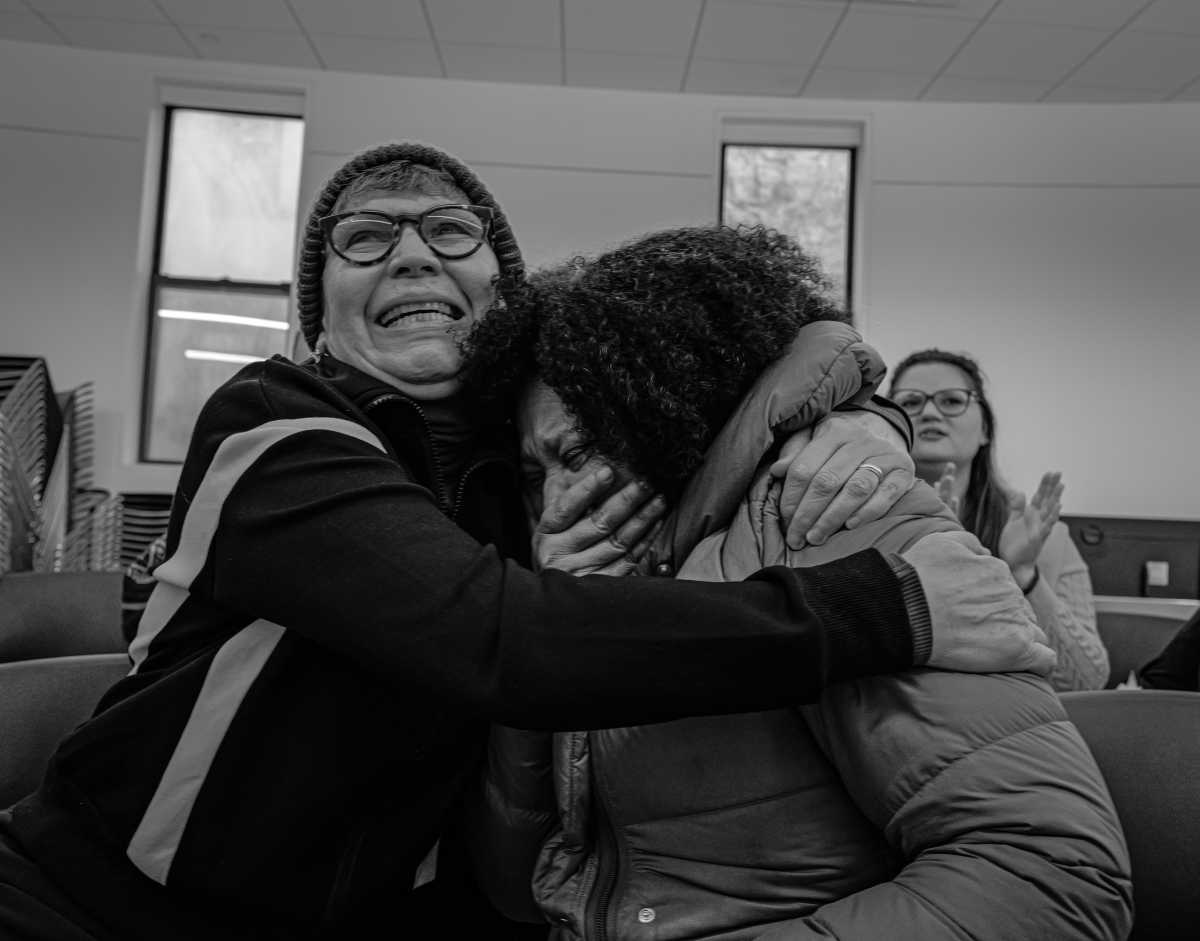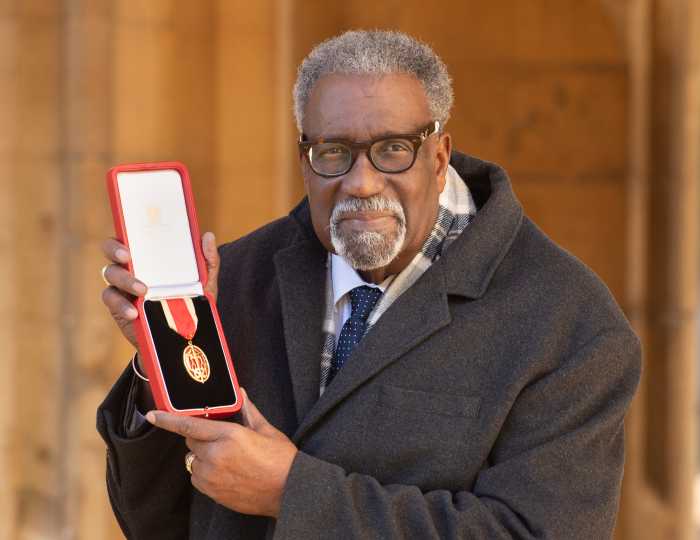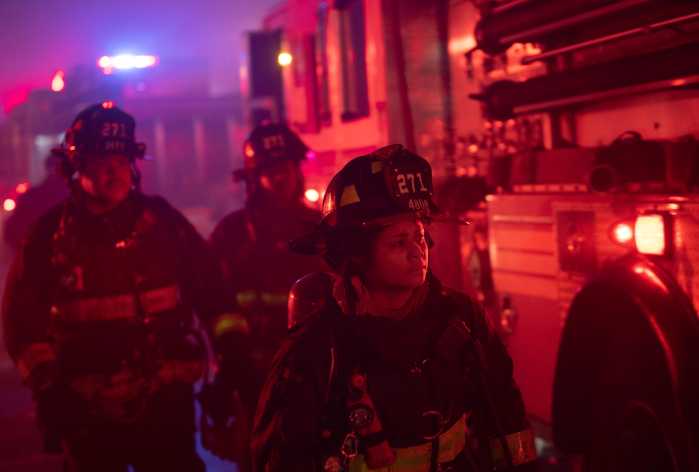Gay leaders in powerful union support Dean while he is under attack
At noon on November 5 in the Great Hall at Cooper Union, former Gov. Howard Dean of Vermont sought to quell the controversy ignited by remarks he made earlier in the week.
“I still want to be the candidate for guys with Confederate flags in their pickup trucks,” Dean had said in a Des Moines Register interview. “We can’t beat George Bush unless we appeal to a broad cross-section of Democrats.”
The speech in an auditorium venerated as the site of Abraham Lincoln’s “right makes might” speech during his 1860 presidential campaign was clearly aimed to dispel the notion that Dean was insensitive to racial issues.
On November 6, the 63-member executive board of the Service Employees International Union (SEIU), a powerful affiliate of the AFL-CIO, will vote in Washington, D.C. on a presidential endorsement. SEIU president Andy Stern was quoted in a recent article in The New Republic saying, “It’s come down to the one candidate who has demonstrated enough support among our members, which is Howard Dean. And anything else we did would really not be true to what we said, which is that the members are the soul of this union.”
Stern then issued a frank assessment of whom he expected his union to support.
“With SEIU, it’s Dean or no endorsement, and no endorsement could win.”
Sal Rosselli, who is gay, is the president of SEIU 250, a chapter of the union based in the Bay Area of California.
“I don’t think Howard Dean is a known guy,” said Rosselli in a phone interview from the nation’s capital as he prepared for Thursday’s executive board meeting. “A lot of people are not aware of the struggles he went through in 2000 when he signed the civil unions bill.”
As governor, Dean signed a same-sex civil unions bill then faced a stiff re-election bid that centered on Vermont being the only state in the nation that afforded same-sex couples a semblance of legal recognition.
On Tuesday night at a “Rock the Vote” forum in Boston sponsored by CNN and MTV, an event meant to generate turnout among young voters, Dean mentioned the civil unions bill to deflect his opponents’ criticism of the Confederate flag remark.
At one point, the Rev. Al Sharpton of New York told Dean, “I don’t think you’re a bigot, but I think it is insensitive and I think you ought to apologize.”
Sen. John Edwards of North Carolina rebuked Dean for telling Southerners what to do. Edwards said that he grew up in the South and “ the people that I grew up with, the vast majority of them, they don’t drive around with Confederate flags on pickup trucks.”
Dean later responded, “I’m the only person here that ever signed a bill that outlawed discrimination against gays and lesbians.”
The flag controversy does not appear to have damaged Dean’s support among SEIU rank and file membership, at least according to several gay and lesbian union officials.
“What the board is considering in this upcoming endorsement is a written health care plan, and a way to pay for it, and workers’ rights, particularly the right of workers to organize,” said T.J. Michels, a spokesperson in SEIU’s national headquarters. “As a doctor, Gov. Dean understands the importance of that issue.”
A physician, Dean often touts his record of passing legislation that now provides all Vermont children, as well as most of the adult population, with health care coverage. That message seems to have made its way into the ranks of SEIU where many members hail from the health professionals, including in Rosselli’s San Francisco chapter. “Our union is made up of 90,000 healthcare workers, so healthcare is what we do,” he said.
Nationally, the SEIU has 1.6 million members, many in the healthcare field, but its also other occupations including probation officers, janitors, and security guards, and is the fastest-growing union in the AFL-CIO. African Americans and Latinos comprise nearly a third of SEIU’s membership and many of it organizers are zealous, motivated activists, not unlike the thousands of “Deaniacs” who are the supporters behind Dean’s Internet-driven campaign and who have catapulted him from a little-known former governor into the Democratic field’s front runner.
Stern, the SEIU president, like Dean, is a vociferous opponent of the war in Iraq, a factor that will also play a significant role at the November 6 endorsement meeting.
“We help lead U.S. Labor Against War,” said Roselli, referring to the progressive organization established by Bob Muehlenkamp, formerly the organizing director in New York’s influential 1199 union, an SEIU chapter. Muehlenkamp now serves as a liaison between the Dean campaign and labor organizations. Dennis Rivera, 1199’s president and an opponent of the war, has been an active supporter of Dean.
“I can’t speak to that,” said Muehlenkamp when he was asked what role, if any, Dean’s record on gay rights will play in the endorsement vote. The former union official acknowledged, however, that Dean’s opposition to the war clearly delineated him from his Democratic opponents and increased his appeal with rank and file union members.
As one queer labor organizer put it, “The SEIU leadership is newer, unlike the AFL-CIO leadership which is more traditional. Gephardt’s support is built along the older lines of Lane Kirkland—industrial style, based in the building trades, for example. SEIU is more guerilla-like.


































